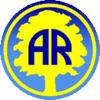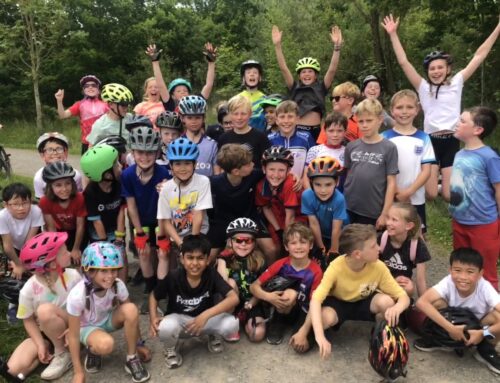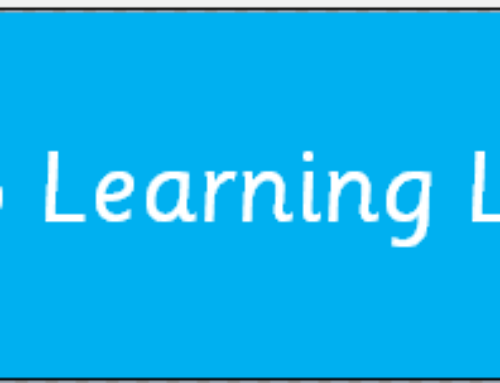Home Learning Letter
Summer Term 2 – Week 5
Dear Parents/Carers,
We hope you’ve had a restful and fun weekend. It’s time to jump into another action-packed week of learning. 6G will continue working from home while 6W are in school. The tasks set are the same as those completed in school.
Over the last 4 weeks, we have explored 2 different narratives based on our topic of Coasts. For the next 2 weeks, we are going to be looking at a non-fiction text: ‘A Planet Full of Plastic’ by Neal Layton. This is a picture book which describes the plastic pollution problem and threat that plastic has on our environment.
As usual, there is a list of other activities to complete in the table at the bottom of this post. We will not specify a day for these activities; the timetable is up to you.
MONDAY
Task 1 – Plastic is the most common type of litter. However, one of the main reasons that we have a problem with plastic pollution is because it is so useful. Have a think about all of the plastic we use every day. How many different uses of plastic can you think of?
Task 2 – We will be reading and exploring the book A Planet Full of Plastic by Neal Layton. Read the first section of the book.
Task 3 – It seems that there are benefits of plastic, but also lots of negatives too. Read this document, which lists some of the pros and cons of plastic. Try to sort them into which are benefits and which are not. You don’t need to print this sheet – you could use the numbers to sort them on a separate piece of paper.
Task 4 – Have you ever thought about how much plastic we use every week? Try to keep a diary of what plastic you have used this week. Use this document to help you, or make your own version.
Task 5 – SPaG – Let’s recap how and when we should use commas. Remember we have been trying to avoid comma splicing! Use this link to watch the video and complete the activities.
Maths
Summer Week 9 – This week focuses on perimeter, area and volume. Start with Lesson 1, which looks at area and perimeter.
Learning Video | Worksheet | Answers
As usual, there is an optional extension task here if you would like it.
TUESDAY
Task 1 – SPaG – Bullet points might be useful in our piece of writing this week. Explore when to use them using this link.
Task 2 – Has anything from A Planet Full of Plastic surprised you? Continue reading the next part of the book by clicking here.
Task 3 – Had ever you heard of trash islands before? Watch this video to find out more.
Task 4 – Micro plastics are very dangerous for animals. Look at these photos. Write down what you can see in the photo and how it makes you feel. Do you have any questions or comments about these photos? Write these down too.
Task 5 –We’ve learnt that there are trash islands in the oceans and that animals can be affected by plastic. But how does plastic in the ocean impact us? Read through the statements on this document. Some of the statements can be ordered to make a timeline, whilst others are extra information. Try to sort the statements into a timeline – you can either cut them out, or simply write down the numbers in the order you think. Once you have finished, look at this document to check you were right.
Maths
Summer Week 9 – This week focuses on perimeter, area and volume. Today’s lesson is focusing on the area of a triangle.
Learning Video | Worksheet | Answers
As usual, there is an optional extension task here if you would like it.
WEDNESDAY
Task 1 – SPaG – Let’s recap relative clauses. Watch this video and complete the activities.
Task 2 – Have your opinions on plastic changed at all this week so far? Read the final part of the book by clicking here, which shows ways that plastic pollution is trying to be combated.
Task 3 – It’s everyone’s job to look after the oceans and reduce, reuse and recycle their plastic. In school, we want to try and do our best to reduce, reuse and recycle. At the end of the book, it mentions some Big Ideas. Try to think of your own Big Idea – it could be something for the community, or it could be something we could do at school. Remember, our aim is to try to reduce, reuse or recycle, so think about what plastic is currently used at school or in people’s homes, and how this could change.
Task 4 – Tomorrow, we are going to write an informative, persuasive text all about why people should reduce, reuse and recycle plastic. We will fill it with the information we have learnt about plastic pollution, as well as try and encourage people to consider the plastic they use. Can you remember what the features of a persuasive letter are? Read this text to remind yourself of the features.
Maths
Summer Week 9 – This week focuses on perimeter, area and volume. Today’s lesson looks at the area of a parallelogram.
Learning Video | Worksheet | Answers
As usual, there is an optional extension task here if you would like it.
THURSDAY
Task 1 – SPaG – Complete this SPaG mat to recap different punctuation. There are differing levels of difficulty on each sheet – choose one that you would like to complete.
Task 2 – We’re going to write our persuasive text. You may like to follow this structure:
- Introduction – introduce why you are writing and why it is important.
- Outline why plastic is very useful
- Discuss the damages that plastic has on the oceans (think animals, trash islands)
- Explain your big idea and how it will reduce plastic waste at school or at home – you should make sure that it is doable and people will want to join in!
Remember we want to persuade and encourage people to think more about plastic pollution, so we need to make sure that we support our ideas or arguments with examples. You may use emotive or powerful language to do this. As you go, you may want to revisit this text to check you have included lots of persuasive features.
Maths
Summer Week 9 – This week focuses on perimeter, area and volume. Today’s lesson looks at volume of cuboids.
Learning Video | Worksheet | Answers
As usual, there is an optional extension task here if you would like it.
FRIDAY
Task 1 – SPaG – For spellings this week, choose a spelling from your reading diary. With a family member, play hangman using your spelling word!
Task 2 – Copy or type up your persuasive information text and include pictures where you think is necessary. Add a big, bold title so that your text is attention grabbing!
Task 4 – Look back on your plastic diary from the week. Is there anything you’d like to change about your plastic consumption? Draw around your hand on a piece of paper. On each finger, write one way that you are going to use less plastic and help keep our oceans free of plastic pollution. Open this document so see some examples you may want to include.
Maths
Quick-Fire Friday! Use the websites below or you can complete the questions on this worksheet to practice your calculation skills. Have you been timing yourself? Are you getting any faster? If you haven’t timed yourself so far, why not try today and see how long the sheet takes you. See if you can beat your time next week.
Times Tables Rockstars: https://play.ttrockstars.com/
Hit the Button: https://www.topmarks.co.uk/maths-games/hit-the-button
Daily 10: https://www.topmarks.co.uk/maths-games/daily10
Quickulations: https://www.transum.org/Software/SW/Quickulations/
Wider Curriculum
| Geography – Coasts lesson 5
Read this booklet to learn more about coastal habitats. Using the information from the booklet, create a table that looks like this, and fill it with as many facts as you can. |
DT
As we have focused on plastic pollution this week, have a look at how you can turn a plastic bottle into a bird feeder by reading this document. If you’re able to, have a go at making one. We’d love to see photos of any finished products! If you’re unable to use wooden spoons, experiment with a different way of creating the ‘shelves’. Or, why not find a different creative way to reuse a plastic bottle? |
| P.E. – The new plan for this week is published on our school website at this link. Click on the most recent link (at the bottom of the list).
Please choose the ideas that are relevant to your child’s age. |
Computing –
If you have a Windows computer, have a go at using Paint 3D to create a 3D underwater image. It could be based on one of your ideas from reading Flotsam last week. Experiment with the different shapes that you can make. Alternatively, you could create a 3D image of a strange underwater animal! |
| P.S.H.E. – Thinking about transition. Writing questions and worries. | Science – Exercise, the heart and muscles.
This week, complete the next two sections of the website you looked at last week: ‘The Heart’ and ‘The Pulse’. https://www.childrensuniversity.manchester.ac.uk/learning-activities/science/exercise/introduction/ |
| Art
https://www.youtube.com/watch?v=d7du-H0Pu7I Follow this video to create a painting of a whale. |





